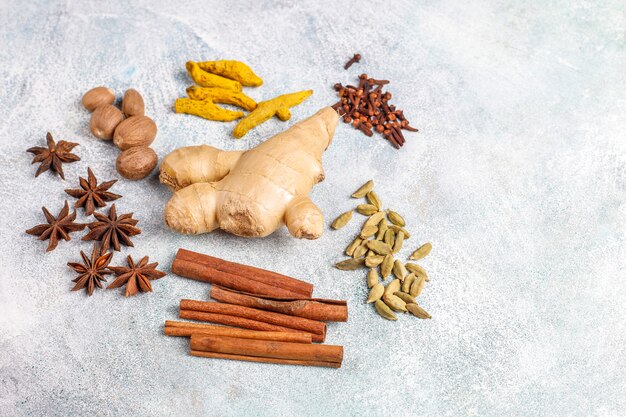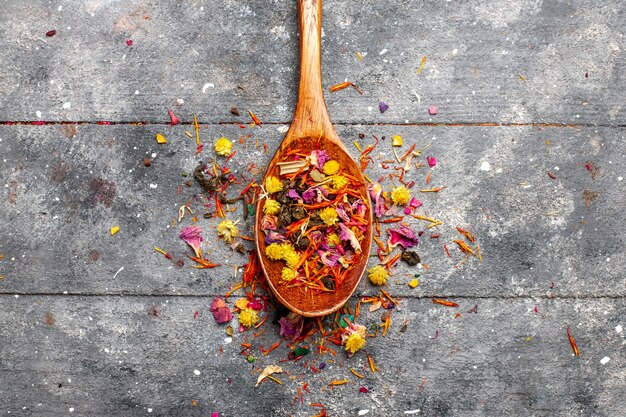Nagaradi Kashayam: A Comprehensive Evidence-Based Guide

Introduction
Imagine an herbal formulation with centuries of use and an expanding modern research base that supports its potential. Nagaradi Kashayam is exactly that—a traditional Ayurvedic decoction renowned for its reputed effectiveness in managing various health concerns. As the global spotlight widens on integrative and complementary medicine, Nagaradi Kashayam has steadily gained recognition among clinicians, researchers, and wellness enthusiasts.
In this in-depth article, we delve into the scientific principles that underlie Nagaradi Kashayam, referencing current research findings and established medical guidelines. We also address practical tips for safe use, dosage considerations, and the evolving consensus on its benefits—all while maintaining an evidence-based and balanced perspective. If you are curious about adding Nagaradi Kashayam to your health regimen or simply want to explore the science behind Ayurvedic remedies, this guide is for you.
Don't wait or self medicate. Start chat with Doctor NOW
What Is Nagaradi Kashayam?
Definition and Background
In Ayurveda, “Kashayam” refers to a decoction prepared by boiling medicinal herbs in water to extract their active constituents. Nagaradi Kashayam is a specialized formulation containing a blend of Ayurvedic herbs, the chief among which is “Nagaram”—Sanskrit for ginger (scientifically known as Zingiber officinale). Other supporting herbs might vary based on the specific textual source or traditional recipe, but ginger typically serves as the main ingredient.
This decoction is popular in Ayurveda for its potential role in:
- Digestive health
- Metabolic balance
- Respiratory support
Traditional Ayurvedic texts, such as the Charaka Samhita and Ashtanga Hridaya, mention ginger-based preparations for their warming and digestive properties. Modern practice continues to adapt these insights, combining ancestral wisdom with contemporary scientific methods.
Key Ingredients of Nagaradi Kashayam
While formulations can differ slightly across manufacturers and regional traditions, the fundamental components often include:
- Ginger (Zingiber officinale)
- Rich in gingerols and shogaols, which have been studied for their anti-inflammatory and antioxidant properties.
- Long Pepper (Piper longum)
- Known to support digestion and enhance the bioavailability of other herbal constituents.
- Black Pepper (Piper nigrum)
- Contains piperine, which has been shown to improve nutrient absorption and exhibit potential antimicrobial effects.
- Cumin (Cuminum cyminum)
- Used in many traditional formulas to aid digestion and promote healthy gut function.
Some versions of Nagaradi Kashayam may also include other herbs like coriander (Coriandrum sativum) or fennel (Foeniculum vulgare), each chosen for synergistic properties that align with Ayurveda’s principle of balancing the body’s doshas—Vata, Pitta, and Kapha.
Mechanism of Action: Ayurvedic and Modern Perspectives
Ayurvedic View
Ayurveda classifies herbs and formulations by their “Rasa” (taste), “Guna” (qualities), “Veerya” (potency), and “Vipaka” (post-digestive effect). Ginger and similar warming spices are believed to ignite “Agni,” or the digestive fire, thereby reducing ama (toxins) in the system. This enhancement in digestion and metabolic activity is thought to help the body manage various ailments, from respiratory congestion to sluggish metabolism.
Modern Scientific Insights
From a biomedical standpoint, research indicates that ginger and its active compounds (gingerols, shogaols) may:
- Support anti-inflammatory pathways: Studies in Phytotherapy Research and other scientific journals have highlighted ginger’s potential in managing inflammation by inhibiting cyclooxygenase (COX) and lipoxygenase (LOX) enzymes.
- Aid in gastric motility: Research suggests ginger’s effectiveness in promoting healthy digestion, possibly offering relief from occasional indigestion or mild gastrointestinal discomfort.
- Enhance antioxidant defense: The rich phenolic content in ginger and peppers contributes to scavenging free radicals, thus potentially reducing oxidative stress in the body.
Although more rigorous, large-scale clinical trials are needed, preliminary findings offer a plausible biological explanation for Nagaradi Kashayam’s traditional uses in digestive and respiratory health.
Scientific Evidence and Current Research
-
Ginger in Clinical Trials
- A 2020 review published in the Journal of Dietary Supplements analyzed multiple randomized controlled trials (RCTs) focusing on ginger’s role in easing gastrointestinal discomfort. The authors concluded that ginger supplementation was generally safe and might offer modest benefits in managing dyspepsia and nausea.
-
Combination Herbal Formulas
- Researchers have noted that synergy among herbs can enhance therapeutic efficacy. A meta-analysis in the Evidence-Based Complementary and Alternative Medicine (eCAM) journal discussed how combining herbal extracts (e.g., ginger, peppers) may lead to enhanced absorption of active compounds and improved clinical outcomes.
-
Respiratory Support
- Preliminary data from smaller studies suggest that the anti-inflammatory properties of ginger may be relevant in managing mild respiratory congestion. However, these findings are not conclusive, and larger-scale, double-blind studies are necessary to confirm the benefits within the framework of Nagaradi Kashayam.
-
Traditional Use Validation
- The Ministry of AYUSH (Ayurveda, Yoga & Naturopathy, Unani, Siddha and Homoeopathy) in India has been actively promoting research on classical Ayurvedic preparations. While specific large-scale RCTs on Nagaradi Kashayam remain limited, ongoing pilot studies aim to provide more robust data.
Health Benefits and Uses of Nagaradi Kashayam
1. Digestive Health
-
Enhanced Digestive Fire (Agni)
Traditional Ayurvedic literature emphasizes how ginger-based formulations spark metabolic processes. Consumers often report experiencing fewer episodes of bloating or indigestion. -
Possible Relief from Mild Gastric Discomfort
The carminative and anti-inflammatory properties of the included herbs may help alleviate mild discomfort in the gastrointestinal tract.
2. Respiratory Wellness
-
Relief from Mild Congestion
The warming nature of ginger, black pepper, and long pepper is historically associated with clearing congestion and providing supportive therapy during seasonal changes. -
Holistic Approach
Unlike single-ingredient remedies, the multi-herb synergy in Nagaradi Kashayam aims to address the root cause of respiratory imbalances, providing a more comprehensive approach.
3. Metabolic Balance
-
Potential Support for Blood Sugar Management
Animal studies have examined the role of ginger in maintaining healthy glucose levels, suggesting possible metabolic benefits. Although human studies are still evolving, this could extend to formulations like Nagaradi Kashayam. -
Weight Management
In Ayurveda, an efficient digestive fire correlates with effective nutrient assimilation and waste elimination, both key factors in maintaining a healthy weight.
4. Overall Vitality
-
Antioxidant and Anti-Inflammatory Effects
Compounds like gingerols may help reduce oxidative stress, thus potentially supporting overall health and vitality. -
Synergistic Herb Blend
The combined effect of multiple spices and herbs in Nagaradi Kashayam contributes to a multi-pronged approach, targeting digestion, immunity, and metabolic processes simultaneously.
Dosage and Administration
Important: Always consult a qualified healthcare provider, particularly if you have underlying health conditions or are on other medications.
-
Traditional Preparation
- Typically, Nagaradi Kashayam is prepared by boiling the prescribed herbs in water until the solution reduces to about one-quarter of its original volume. This concentrates the active constituents and yields a potent decoction.
- Once the decoction is ready, it can be consumed warm, often on an empty stomach or before meals, depending on specific Ayurvedic protocols.
-
Commercially Available Forms
- Readymade Kashayam: Certain Ayurvedic pharmacies produce bottled or packaged versions.
- Concentrated Powders: These may be mixed with warm water to create an instant decoction.
- Tablets or Capsules: Offered by some manufacturers for convenience and standardized dosing.
-
General Dose Guidelines
- The dosage can vary, but a typical recommendation for an adult may range from 10 to 20 ml of kashayam twice daily, diluted with warm water if necessary.
- For powders or capsules, follow the manufacturer’s instructions or consult an Ayurvedic practitioner for individualized advice.
Potential Side Effects and Precautions
- Gastrointestinal Sensitivity: High concentrations of ginger or pepper might irritate the stomach lining in sensitive individuals. If you experience discomfort, reduce your dosage or discontinue use.
- Medication Interactions: Piperine in black pepper can affect drug metabolism. Patients taking medications (e.g., blood thinners, antidiabetics) should seek medical advice before starting Nagaradi Kashayam.
- Pregnancy and Breastfeeding: Limited data exist on the safety of certain herbs in pregnancy. Always consult with an obstetrician or a certified Ayurvedic specialist for personalized guidance.
- Allergic Reactions: Although rare, some people may develop skin rashes or other signs of allergy to ginger or pepper. Discontinue immediately if such reactions occur.
Frequently Asked Questions (FAQs)
-
Is Nagaradi Kashayam safe for children?
- While some practitioners may recommend lower doses for children, scientific data are insufficient. Consult a pediatrician or Ayurvedic expert for personalized advice.
-
Can I combine Nagaradi Kashayam with my current medications?
- Because of possible herb-drug interactions, notably due to piperine’s effect on drug metabolism, medical consultation is critical.
-
How quickly can I expect to see benefits?
- Some individuals notice digestive relief within a few days. However, long-term benefits like metabolic balance or respiratory support may require consistent use under professional guidance.
-
Can I prepare Nagaradi Kashayam at home?
- Yes. If you have access to quality herbs, you can make a simple decoction at home. However, the proportions and boiling times are crucial to extract the desired constituents effectively.
-
Does modern research fully support Ayurvedic claims?
- Many traditional claims are backed by emerging research, yet more large-scale and systematic clinical trials are needed for conclusive evidence.
Disclaimer
The information provided in this article is for educational purposes only and does not replace professional medical advice. Always consult a qualified healthcare provider or an Ayurvedic specialist for personalized recommendations, diagnosis, or treatment. The author and publisher are not responsible for any adverse effects arising from the use or misuse of the information presented here.
Conclusion and Call to Action
Nagaradi Kashayam embodies a fusion of time-tested Ayurvedic wisdom and emerging scientific interest. Preliminary evidence suggests it may offer digestive, respiratory, and metabolic benefits. Whether you are a healthcare professional seeking integrative approaches or someone interested in exploring holistic wellness, Nagaradi Kashayam offers a compelling avenue for further investigation.
While its long history of use underpins its traditional credibility, rigorous modern research is still evolving. If you decide to incorporate Nagaradi Kashayam into your health routine, remember to consult your healthcare provider, especially if you are on prescription medications or managing chronic conditions.
Found this article helpful? Share it with friends, family, or colleagues who might benefit from learning about Nagaradi Kashayam. For more insights on holistic healthcare, feel free to subscribe to our newsletter or leave a comment below. Your engagement helps us bring you more research-based content that bridges the gap between traditional wisdom and modern science.
Got any more questions?
Ask Ayurvedic doctor a question and get a consultation online on the problem of your concern in a free or paid mode.
More than 2,000 experienced doctors work and wait for your questions on our site and help users to solve their health problems every day.



